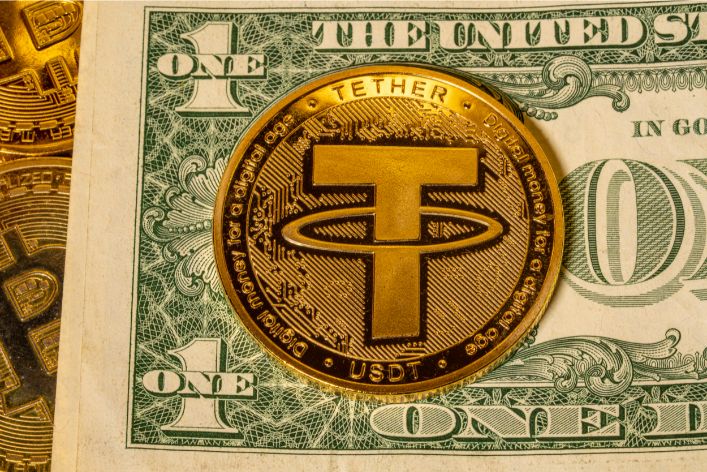In recent years, the popularity of blockchain technology has surged, and with it, the use of digital tokens.
Tokens are used to represent assets on a blockchain, and they can be used for a variety of purposes.
They can facilitate transactions or provide access to decentralized applications.
Two of the most popular token standards are the ERC-20 and BEP-20 token standards.
They were developed on the Ethereum and Binance Smart Chain (BSC) networks, respectively.
In this blog post, we will explore the differences between these two token standards.
We will help you understand which one might be best for your needs.
ERC-20 Tokens
ERC-20 tokens are digital tokens that adhere to a set of rules and standards on the Ethereum blockchain.
Developers introduced these tokens in 2015. They quickly became the most widely used token standard in the blockchain ecosystem.
Many of the most popular cryptocurrencies, including USDT, BNB, and LINK, are ERC-20 tokens.
Advantages of ERC-20 Tokens
The Ethereum blockchain widely uses ERC-20 tokens as a standard.
They have become the de facto standard for creating new tokens and offer several advantages over other token standards.
Some of the key advantages of ERC-20 tokens include:
Interoperability
ERC-20 tokens easily interact with other Ethereum-based applications, smart contracts, and tokens.
This enables seamless integration of ERC-20 tokens with other Ethereum-based platforms and applications.
The interoperability of ERC-20 tokens is a significant advantage for users.
It allows them to move their tokens freely between different applications without any restrictions.
Wide Acceptance
Cryptocurrency exchanges, wallets, and other platforms widely accept ERC-20 tokens.
Users can easily buy, sell, trade, and store their ERC-20 tokens on various platforms.
The widespread acceptance of ERC-20 tokens is a significant advantage for users.
It ensures their tokens have high liquidity.
And can be easily converted into other cryptocurrencies or fiat currencies.
Customizable
ERC-20 tokens are highly customizable, allowing developers to create tokens that meet specific requirements.
Developers can set the total supply of tokens, the decimals of precision, and other parameters.
They can also implement additional features such as burn, pause, and time-locked functions.
The customizability of ERC-20 tokens is a significant advantage for developers.
In addition, developers can create tokens tailored to their specific needs.
Security
ERC-20 tokens leverage the security features of the Ethereum blockchain.
The Ethereum blockchain uses a consensus algorithm called Proof-of-Work (PoW) to validate transactions and secure the network.
ERC-20 tokens are also auditable, which means that users can verify the token’s supply, transactions, and balances on the blockchain.
Moreover, the security of ERC-20 tokens is a significant advantage for users.
This is because it ensures that their tokens are safe from theft or hacking.
Smart Contract Integration
ERC-20 tokens are built on top of smart contracts, which are self-executing contracts that can be programmed to perform certain actions automatically.
Smart contracts allow ERC-20 tokens to be programmed with complex logic and automated functions.
Read: Differences and Similarities Between Cryptocurrency Tokens and Coins
Put Your Tech Company on the Map!
Get featured on Nicholas Idoko’s Blog for just $50. Showcase your business, boost credibility, and reach a growing audience eager for tech solutions.
Publish Now
Disadvantages of ERC-20 Tokens
Despite their many advantages, ERC-20 tokens have some disadvantages that users should know.
Some of the key disadvantages of ERC-20 tokens include:
High Gas Fees
One of the biggest disadvantages of ERC-20 tokens is the high gas fees associated with transactions on the Ethereum blockchain.
Gas is the unit of measure for the computational work required to validate and execute a transaction on the Ethereum blockchain.
Every transaction on the Ethereum network requires a certain amount of gas, and the gas fees can vary widely depending on network congestion and demand.
When the Ethereum network is congested, gas fees can skyrocket, making it expensive to execute transactions, particularly for small transactions.
Limited Scalability
The Ethereum blockchain has been facing scalability issues due to its design and architecture.
The current iteration of the Ethereum blockchain, known as Ethereum 1.0, can only handle around 15-45 transactions per second (TPS)
This is significantly lower than traditional payment networks like Visa, which can handle thousands of transactions per second.
The limited scalability of the Ethereum network can be a disadvantage for developers who want to create applications that require high throughput and fast transaction speeds.
This also limits the adoption of ERC-20 tokens, as users may opt for tokens built on faster and more scalable blockchains.
Code Vulnerabilities
Developers build ERC-20 tokens on top of smart contracts, which are stored on the Ethereum blockchain.
Smart contracts are immutable, meaning that once they are deployed, they cannot be changed or updated.
This makes smart contracts vulnerable to code vulnerabilities and bugs that attackers can exploit.
Several high-profile breaches have resulted in the loss of millions of dollars worth of ERC-20 tokens.
Read: All You Need To Know About Cryptocurrency
BEP-20 Tokens
BEP-20 tokens are digital tokens that adhere to a set of rules and standards on the Binance Smart Chain (BSC).
Introduced in 2020, they quickly gained popularity in the decentralized finance (DeFi) ecosystem.
This is due to their fast transaction speeds and low fees.
Many of the most popular cryptocurrencies on the Binance Smart Chain, including BAKE, CAKE, and BUSD, are BEP-20 tokens.
Advantages of BEP-20 Tokens
BEP-20 tokens offer many advantages that make them a popular choice for users.
Some of the key advantages include:
Low Transaction Fees
BEP-20 tokens have significantly lower transaction fees than ERC-20 tokens on the Ethereum blockchain.
The BSC network processes transactions faster and at a lower cost than Ethereum.
This makes it an attractive option for users who want to transact frequently or make small transactions.
High Scalability
The Binance Smart Chain scales up to 100 transactions per second (TPS).
This is significantly higher than the Ethereum blockchain’s capacity of 15-45 TPS.
The high scalability of the BSC network makes it an attractive option for developers who want to create high-throughput applications and users who want to transact quickly and efficiently.
Fast Transaction Speeds
BEP-20 tokens, built on the Binance Smart Chain (BSC), use the Proof of Staked Authority (PoSA) consensus algorithm.
This algorithm validates transactions on the network.
The PoSA consensus algorithm processes transactions quickly and efficiently, handling up to 100 transactions per second (TPS).
This is significantly faster than the Ethereum blockchain, which has a capacity of 15-45 TPS.
Users benefit from faster and more efficient transactions without long wait times.
It also makes BEP-20 tokens attractive for developers who want to create high-throughput applications.
Ecosystem Integration
Binance, the company behind the Binance Smart Chain, has a robust ecosystem that includes a decentralized exchange (DEX), a centralized exchange (CEX), and other applications.
Put Your Tech Company on the Map!
Get featured on Nicholas Idoko’s Blog for just $50. Showcase your business, boost credibility, and reach a growing audience eager for tech solutions.
Publish NowThis ecosystem integration makes it easier for users to buy, sell, trade, and store BEP-20 tokens on various platforms.
It also provides developers with access to a wide range of tools and resources to build their applications on the BSC network.
Enhanced Functionality
One of the significant features of the BSC network is the ability to execute smart contracts.
This allows developers to create complex decentralized applications (dApps) that can perform various functions.
This functionality is not available on other token standards like Bitcoin and Litecoin.
BEP-20 tokens support various programming languages, including Solidity, used for developing Ethereum smart contracts.
This makes it easier for developers to create applications on the BSC network, as they can use familiar programming languages and tools.
Read: Why Are the Gas Fees for TRC-20 Tokens Low?
Disadvantages of BEP-20 Tokens
Despite their many advantages, BEP-20 tokens also have some disadvantages that users should be aware of.
Some of the key disadvantages include:
Centralized Control
One of the significant disadvantages of BEP-20 tokens is that they are built on the Binance Smart Chain, which is a centralized network.
The Binance Smart Chain is controlled by Binance, the largest centralized cryptocurrency exchange, which raises concerns about centralization and control.
Because Binance controls the network, it can modify the network’s rules and protocols, which can affect the token’s value and functionality.
Security Risks
BEP-20 tokens also face security risks because they are built on the Binance Smart Chain.
The Binance Smart Chain has experienced several security incidents in the past.
This includes a flash loan attack that resulted in the loss of $30 million worth of funds.
Because BEP-20 tokens are built on the Binance Smart Chain, they are subject to the same security risks as the network.
This can make them less attractive to users and developers who prioritize security and safety.
Limited Adoption
Finally, BEP-20 tokens have limited adoption compared to other token standards like ERC-20.
Although the Binance Smart Chain has seen significant growth in recent years, it still has a smaller user base and ecosystem than Ethereum.
This limited adoption can make it challenging for developers to create applications and attract users to their projects.
It can also make it more challenging for users to find and use BEP-20 tokens, as they may not be as widely accepted as other tokens.
Read: Blockchain Business Trends Transforming Industries in 2024 & 2025

Differences Between BEP-20 and ERC-20 Tokens
While both BEP-20 and ERC-20 tokens are used for similar purposes, users should be aware of several technical and market differences between the two standards.
Technical Differences
- Token Standards: ERC-20 tokens are based on the Ethereum blockchain, while BEP-20 tokens are based on the Binance Smart Chain. This means that they have different technical standards and requirements. For example, BEP-20 tokens use a different hashing algorithm than ERC-20 tokens. This affects how transactions are processed and validated on the network.
- Token Burn and Minting: BEP-20 tokens offer the option to burn and mint tokens. This means that users can destroy existing tokens and create new ones. ERC-20 tokens do not have this feature.
- Transaction Fees: BEP-20 tokens use the Binance Coin (BNB) as the native token for transaction fees. This means that users must hold BNB to pay transaction fees on the network. ERC-20 tokens, on the other hand, use Ether (ETH) as the native token for transaction fees. Users must hold ETH to pay transaction fees on the Ethereum network.
Market Differences
- Usage: ERC-20 tokens are more widely used and accepted than BEP-20 tokens. This means that users may have more options for buying and selling ERC-20 tokens than BEP-20 tokens. BEP-20 tokens are predominantly used within the BSC ecosystem for a range of applications such as decentralized finance (DeFi), gaming, and non-fungible tokens (NFTs).
- Popularity: ERC-20 tokens are more popular than BEP-20 tokens, and they are often used as a benchmark for other token standards.
- Adoption: While the Binance Smart Chain has seen rapid growth in recent years, it is still not as widely adopted as Ethereum. This means that ERC-20 tokens may be a more reliable choice for users who need to transact frequently or hold their assets for long periods.
Conclusion
BEP-20 and ERC-20 tokens are two of the most popular token standards in the blockchain ecosystem.
While they share some similarities, they have significant technical and market differences that users should be aware of.
Ultimately, choosing between BEP-20 and ERC-20 tokens will depend on the user’s specific needs and preferences.
If low fees and fast transaction speeds are a priority, then BEP-20 tokens may be the best choice.
However, if interoperability and widespread acceptance are more important, then ERC-20 tokens may be the better option.
As with any investment decision, users should research and seek professional advice before deciding.
Before You Go…
Hey, thank you for reading this blog to the end. I hope it was helpful. Let me tell you a little bit about Nicholas Idoko Technologies.
We help businesses and companies build an online presence by developing web, mobile, desktop, and blockchain applications.
We also help aspiring software developers and programmers learn the skills they need to have a successful career.
Take your first step to becoming a programming boss by joining our Learn To Code academy today!
Be sure to contact us if you need more information or have any questions! We are readily available.
Put Your Tech Company on the Map!
Get featured on Nicholas Idoko’s Blog for just $50. Showcase your business, boost credibility, and reach a growing audience eager for tech solutions.
Publish Now[E-Books for Sale]
1,500 AI Applications for Next-Level Growth: Unleash the Potential for Wealth and Innovation
$5.38 • 1,500 AI Applications • 228 pages
Are you ready to tap into the power of Artificial Intelligence without the tech jargon and endless guesswork? This definitive e-book unlocks 1,500 real-world AI strategies that can help you.
See All 1,500 AI Applications of this E-Book
750 Lucrative Business Ideas: Your Ultimate Guide to Thriving in the U.S. Market
$49 • 750 Business Ideas • 109 pages
Unlock 750 profitable business ideas to transform your future. Discover the ultimate guide for aspiring entrepreneurs today!
See All 750 Business Ideas of this E-Book
500 Cutting-Edge Tech Startup Ideas for 2024 & 2025: Innovate, Create, Dominate
$19.99 • 500 Tech Startup Ideas • 62 pages
You will get inspired with 500 innovative tech startup ideas for 2024 and 2025, complete with concise descriptions to help you kickstart your entrepreneurial journey in AI, Blockchain, IoT, Fintech, and AR/VR.
We Design & Develop Websites, Android & iOS Apps
Looking to transform your digital presence? We specialize in creating stunning websites and powerful mobile apps for Android and iOS. Let us bring your vision to life with innovative, tailored solutions!
Get Started Today



